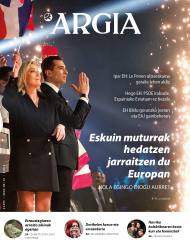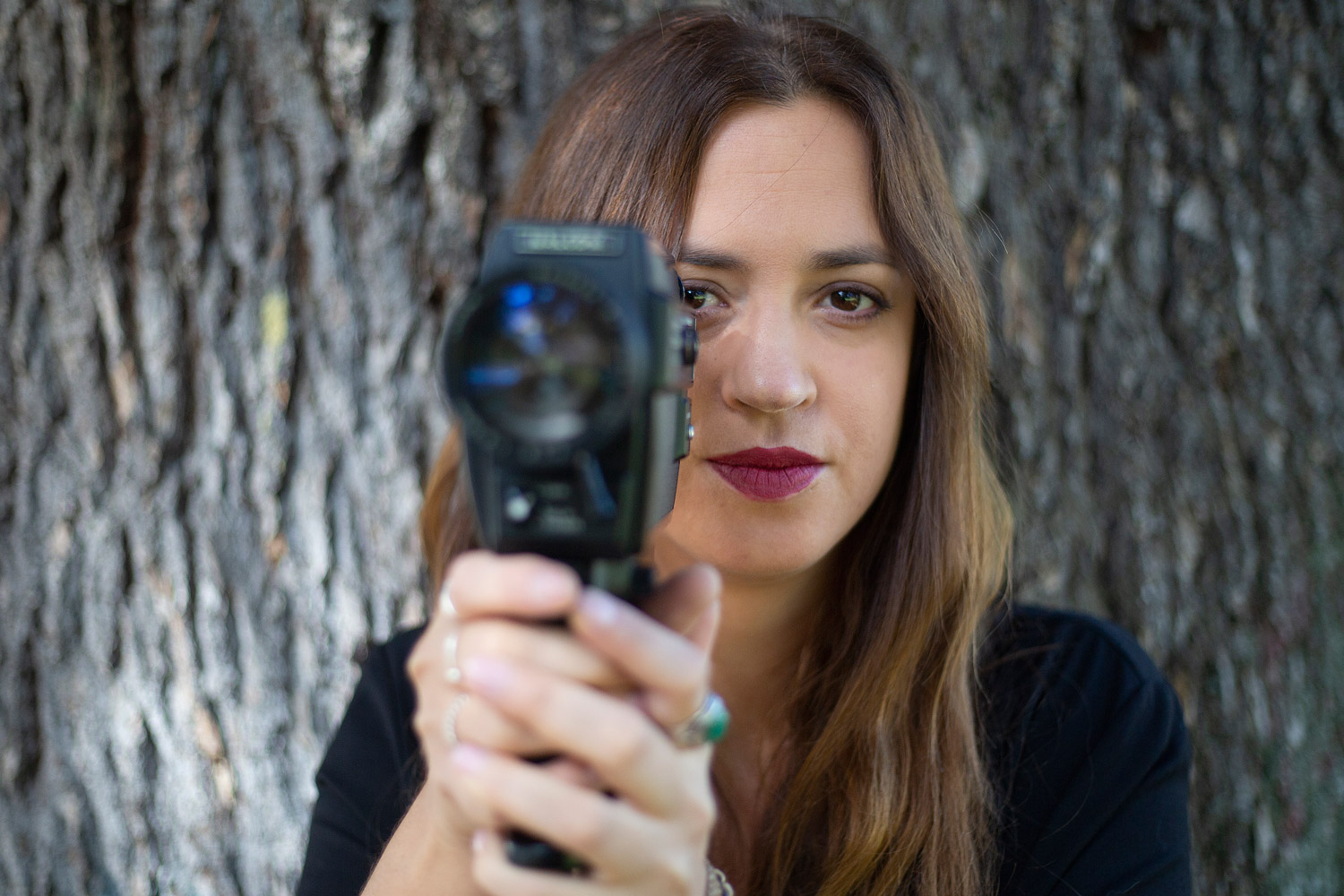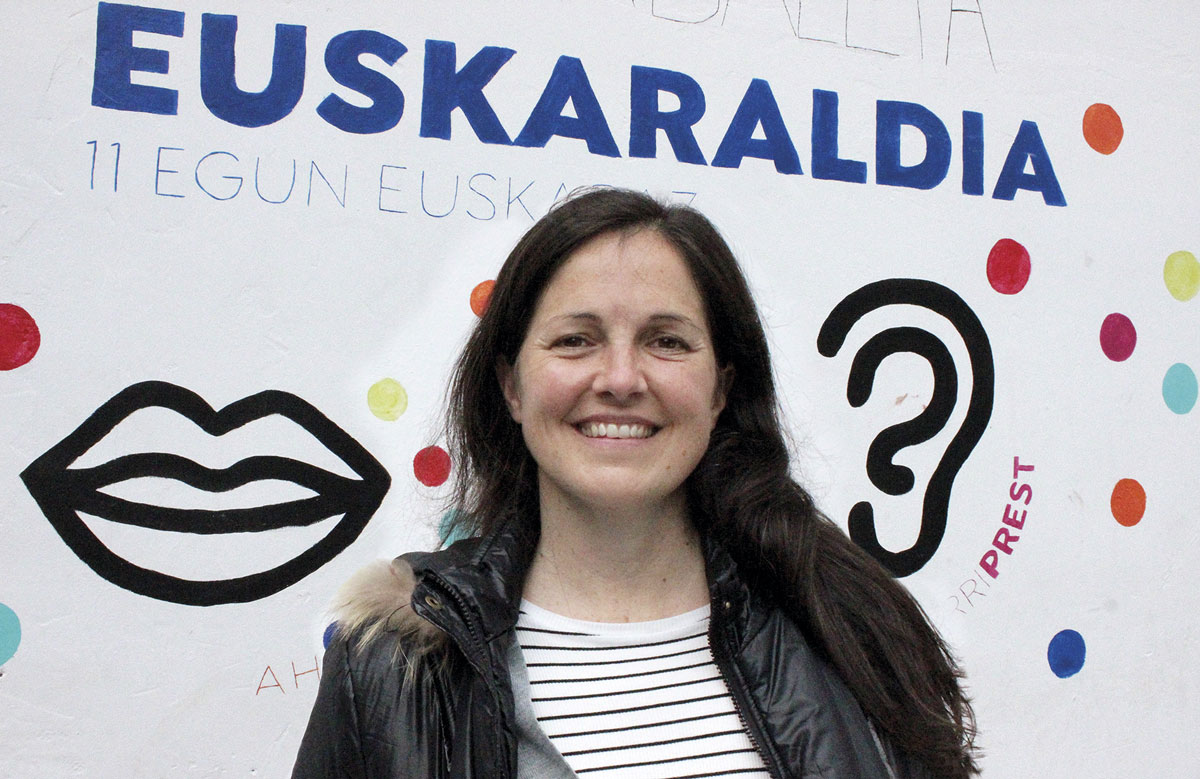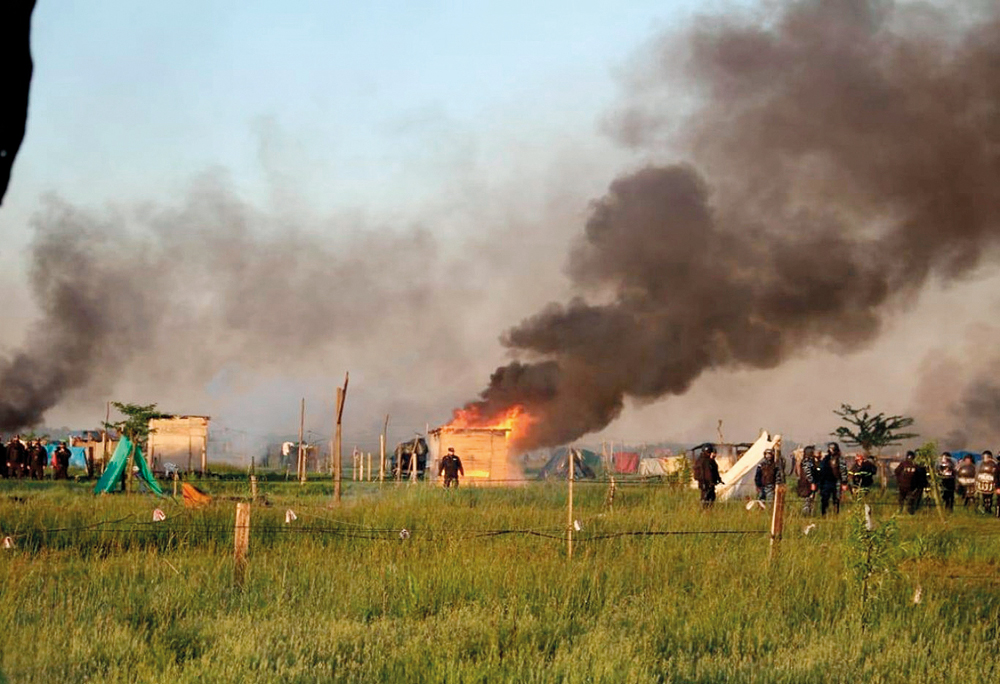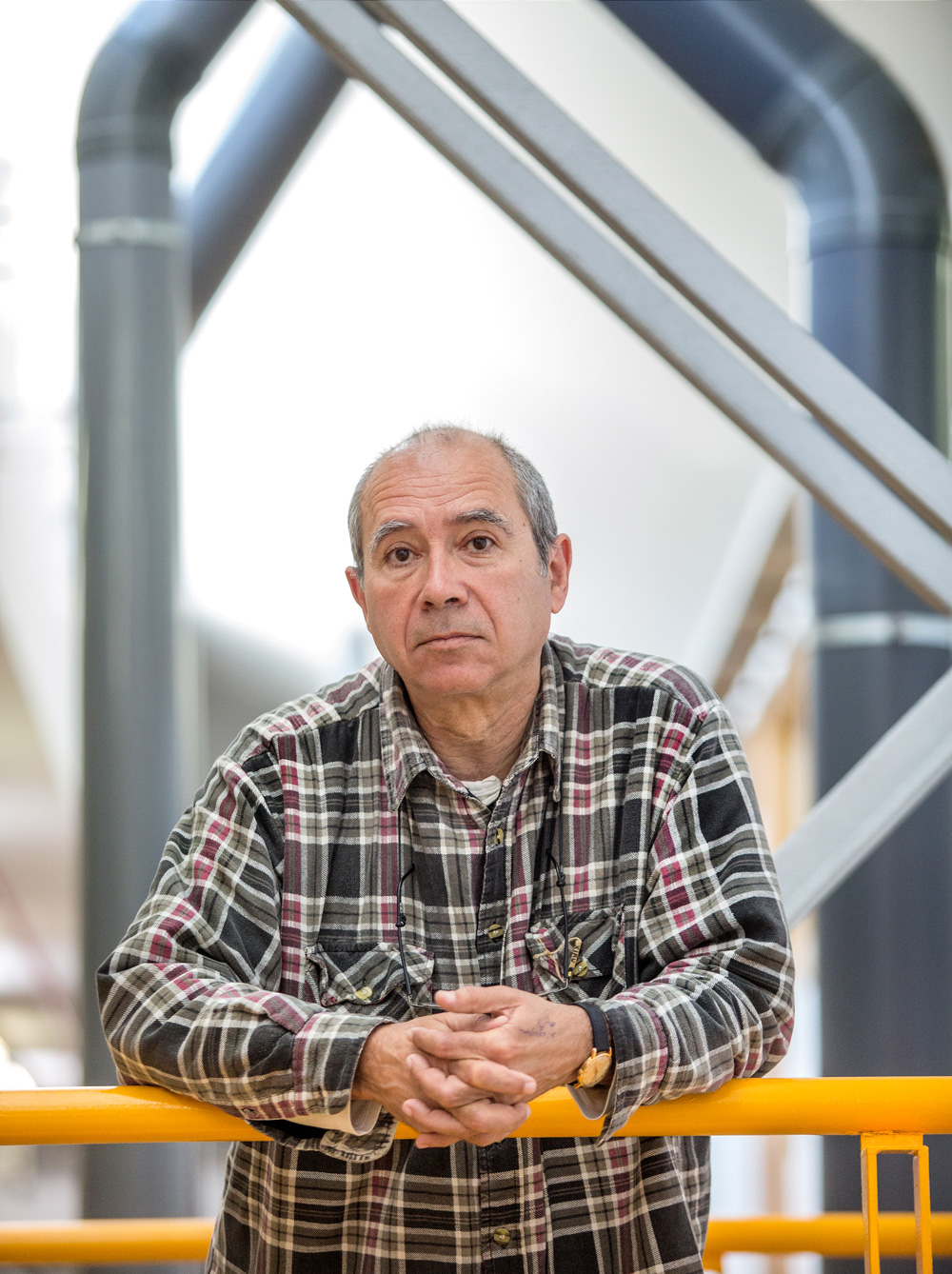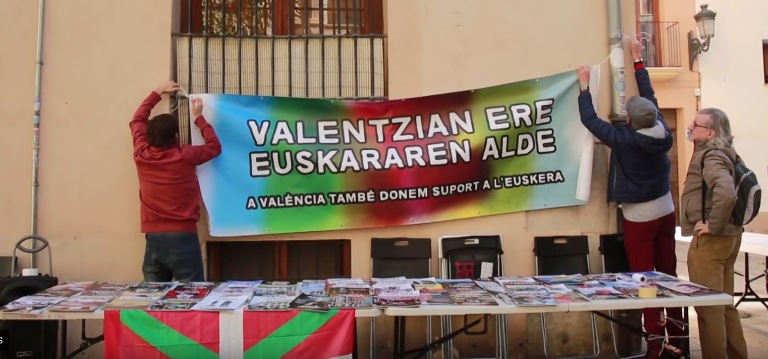"In the Diaspora they live today, forgetting a little the origin and history of their ancestors"
- He was a famous Pelotari, world champion, but only once he played in Euskal Herria, since he was born, grew up and lived in Mexico, where his parents traveled there fleeing the 1936 war. Abertzale, President of the Mexican Basque Country, Government Advisor, Amezketarra, wife friend... He visits us almost every year.

Josu Garritz Ruiz. Mexico, 1944
History of post-war exile. He started working as a worker, as a camper driver. He was then head of production at the Bacardi plant and then to the company. In 1993 he was appointed director of the Instituto Vasco Mexicano de Desarrollo, to which 140 companies were relocated for eleven years. Subsequently, the institution, which became the Government ' s Delegation to Mexico, worked for the Secretariat of Foreign Action. For about 25 years he has been an advisor to the government, until 2015, except for the time when Patxi López was lehendakari.
He was a professional pelotari, world champion in short shovel, in Biarritz in 1978.
You come with your crutch...
That is what professional sport, erosion has! Youth abuses are also there. Once, I also played three football matches on a Sunday! Before I was a pelotari, I played soccer. In Mexico, the so-called “Spanish league” was made, and I was playing with Athletic. I studied at Maristas and I always went from the school selection. Then, when I started UNAM [Autonomous University of Mexico], we won the university interleague and were welcomed by the two Toluca teams of our team. I spent half a year there, because I couldn't play because at the age of fourteen I had a tumor in the tibial femors.
So you couldn't play?
I was prevented from playing, but of course, I didn't listen! I had to wash my sportswear secretly so my parents don't know. He lived in the capital, but Toluca was 60 kilometers away! The trainings took place between the week, and when I was in college, I couldn't intentionally go to the trainings, and not go to the trainings, it meant I had to pay a fine! In the end, instead of paying Toluca to me, I was indebted to the club! A very nice time! I played a couple of games in the first division when Vicente Pereda (Toluca, 1941, team star player, scorer) was injured and made me an incredible illusion.
The brothers were professors of the university. You, athlete...
Yes. Andoni, Graduate Director of UNAM and Head of the Faculty of Chemistry. Amaia, a well-known historian. I was a professional pelotari and then an entrepreneur. I opened the plastic injection workshop and I was lucky. No complaints. & '97; I named the company Euzkamex, with [Arana Goiri] k of Sabino, so. By this name, a street in the Mexican capital is called Euzkaro, a colony or enclosure called Euzkadi, a house that makes wheels of vehicles... This workshop was founded by Anjel Urraza and the Basques are still the biggest: the Zunzunis. That is where we Basques stand.
The family emigrated there since the Spanish Civil War...The story
of our family yes, that is, but the Basques in Mexico are very earlier. Our sister would tell her the story in all detail, much better than me! Without going to the time of Christopher Columbus, at the end of the 19th century the Basques stood out as cotton collectors [San Luis Potosi], with [Leonardo] Zuloaga in the head. Her lady [Luisa] was Ibarra. I think Zuloaga brought them by Basagoiti. He married Zuloaga's daughter, for example, Eneko Belausteguigoitia's father. Of course, they made the money. Since the Civil War [in Spain] it went all the way, but the majority, studied, culta, went ahead in Mexico, where the formation of its people was scarce.

His father was a member of the PNV, also of ELA-STV, editor of the Euzkadi newspaper – he himself wrote the news of the bombing of Gernika – he also wrote his wish... He
had to flee to Mexico, where he met our mother, Alicia Ruiz Roteta, from Elcano Street in Bilbao. They got married in 1940. Amaia was born two years later, me in 1944, and Andoni in 1947. Seventeen were our parents and siblings, and his older brother Blas, almost his father, led Toldos-o [Spain] to study the skin pyro-etched in oil. When he arrived in Mexico, he started working on it, among other things, at the Spanish Casino. Apparently, they were etched with chairs and shields, somewhat deteriorated, and our father restored in quarantined stalls. Also the interior of the doors of the cathedral of Morelia.
Go around!
Yes ... We were children, but I remember my father working from left to right. Then he took the heraldic, he began to make shields, to turn everyone he could into nobles in Mexico! Ha, ha... He was also the director of Euzko-Deya magazine since 1940, together with Ruiz de Azua Ogoñope [Antonio Ruiz de Azua Zabalbeaskoa, Elantxobe, 1904 – Mexico, 1974]. Currently, Julen Ruiz de Azua, president of the Basque Center of the Mexican capital, is one of the nieces of Ogoño.
Returning to the history of your family, did your father put his father in the head that was Basque?Being Basque was to get in the head, in any case go to the Basque Country etxea on weekends, be
with his friends and go to the sports club Mundet. We took the bus in downtown Mexico, where all the Spanish refugees lived. To go to Mundet we had to take two buses for an hour. This club was built by a Catalan and had a swimming pool, pediment, etc. From there, we went to the Basque Country Etxea de Madero on foot, with his father, to the essays of the group of dances, one day of the week. If there was one big day, we would go more to the essays of the Basque Country.
The importance of the group of dances of the Basque Country etxea...In
our case, that is what impregnated us, not the homemade effects. “This is our house!”, as we say. Mother and I, for example, never leave that path. For his part, Andoni lost a bit on the road: on the one hand, his wife was of Asturian origin and, on the other, he turned to the work of the university. However, he was always proud of his Basque character! I mean, he left the Basque rock. For example, I kept my friends forever. Pedro Menoyo, Javi Urtiaga…
Martin Barinagarrementeria...
Yes, Martin too! In 1950, Martin, president of our Basque Country, was one of the nine who travelled by boat from Santurtzi to Mexico... I knew Martin well and with him some of those who had made that adventure: [José Luis y Manolo] The Algorri brothers, Agustín Palacios... [José Luis and José Ramón Bilbatua, Ismael Martín del Río, Félix San Mames Loizaga and Gregorio Solano].
He was a pelotari in Mexico and also became world champion in short shovel in 1978. How did you do pelotari?
Our father has been a member of Mundeles since 1944. & '97; Partner 310, and note that the top 300 Mundet family had booked them. My father played the ball and in Mund, as we knew all those possibilities, he practiced as many sports as he could: swimming, ball, football... For example, I started out as kids in the pool, crawl in one and jumps in another, without passion for the pediment. The truth is, until I didn't get married, I didn't start to the ball!
Look, the other one!
Yes ... I married at the age of 27, and until then I was mostly playing football, but at the time of college I played not only in the football team, but also in the basketball, baseball, ball and swimming. It had facilities for sport! Honey! I was a dancer and [When I danced my greeting] and my knee gave me my leg until I touched my face! It was also a matter of testing, because I spent several hours training. Even when I played a ball, no one trained as much as I did: in the pediment alone, I took 30 balls and threw them one after the other until the bounce, leaving me on top of the plate with the right or with the rebes! Then, pulling the ball to the bounce, picking up and throwing the width! That was what I was doing for two hours, again and again, many times, in order to be able to play in the games!
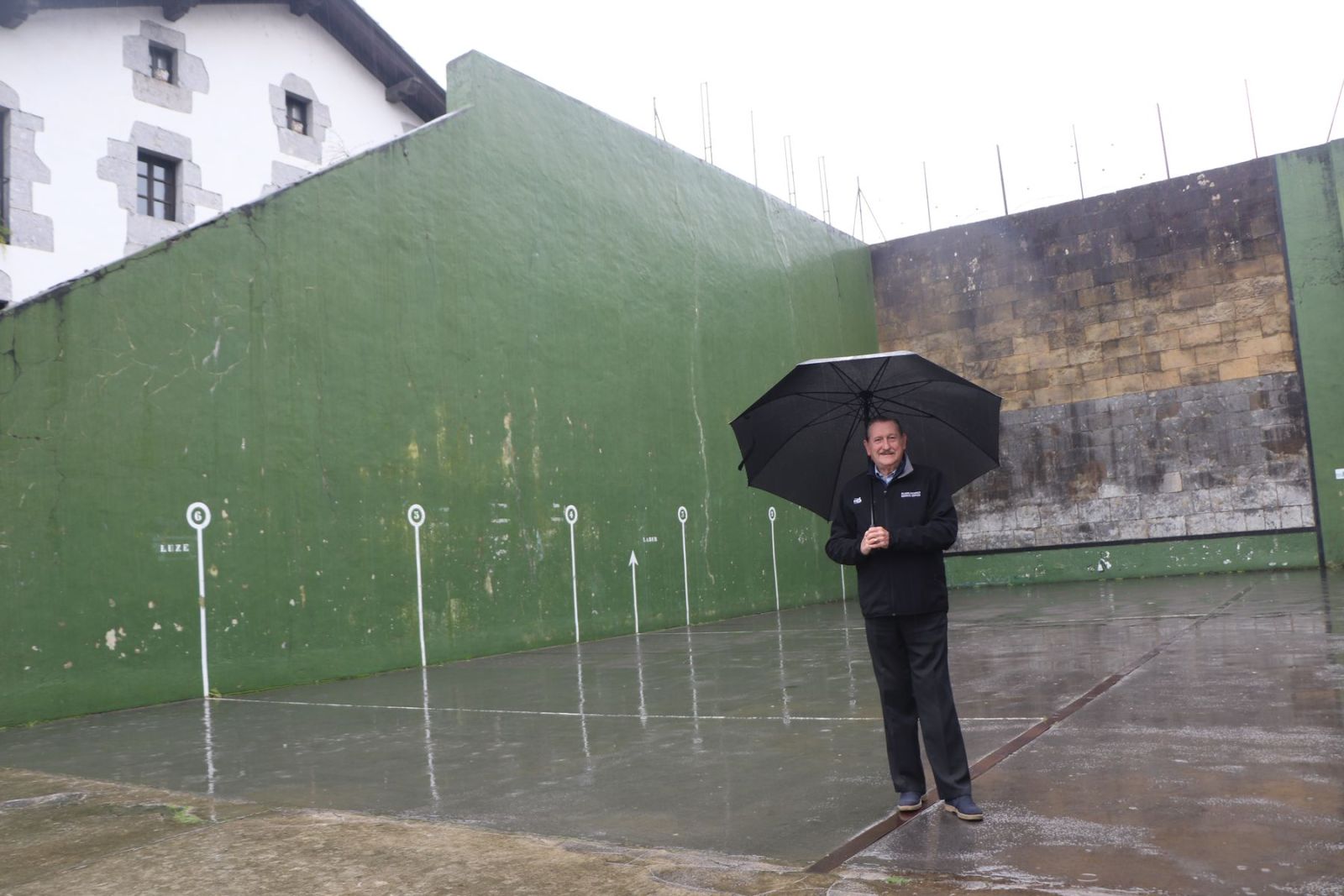
Your father also played the ball...
Yes. And one thing: when I had to play, I never told anything, I told my partner! “Aldo, don’t stick on the left wall... For D. Joseph raises the ball in such a way that he likes it.” Instead of saying anything to me, I gave orders to my colleague. My father, Jesus Garritz, was a good pelotari, he was great on the court, and that's the gift I received, because it's not just about playing the ball, it's about knowing how to be well positioned on the court.
From 1977 to 1986 it was pelotari...
Until I retired. But I told him, I started late in the ball, I was 34 years old! My colleagues, Pepe Musik, 21! By then, he knew much more than Musik in piles! We made a great record for couples: We played 165 games, with leather ball or short paddle, and we just lost three, three! One of them, the end of the world in Mexico [1977], against Argentina, but the loss of that party taught us more than much...
What did you teach them, for example?
I don't know how to say, but they taught us something, yes, since then we didn't lose any match! What taught us, for example, to be more united than ever before. We do not reproach ourselves, for example. A year later, we were invited to Argentina, on the 50th anniversary of the International Federation of Basque Ball, and we repeated the end of Mexico in Buenos Aires. And we beat them. And that joy! We never lost party behind!
His father died playing ball in the Mundet club.
Yes. We would go together to the pediment, play a little bit, and then our son would come and play two by two with our father, with our striker Josu. Then I went to another court to do my training with other pelotaris. Once, when we were at it, I got a warning: “Your father has fallen sterile!” I went running. He died suddenly of a heart attack. I think I also had thought about how to get out of our art.
What do you mean?
Two weeks earlier she had a heart murmur. The doctor took him out of the door. But we knew all of that later. He told us nothing. The Sunday after the blow he did not play the ball, he rested. After a week he died again to the ball. He was 77 years old. The last two games played with me and with our son! The worst thing was to tell her mother ... Our mother only passed fourteen years after the death of our father, who died at the age of 92.
Alicia Ruiz Roteta, your mother. In her family, there's a story of firing.
Yes, then! Julián Zugazagoitia Mendieta [Bilbao, 1899 – Madrid, 1940], extradited and shot from France along with other nationalists. Our mother was Julian Zugazagoitia's niece. Sister of our mother, wife of Julián Zugazagoitia. Zugazagoitia [Spain], Minister of the Interior during the Republic, fled to France, but was captured there by Gestapo, transferred to Spain and shot.
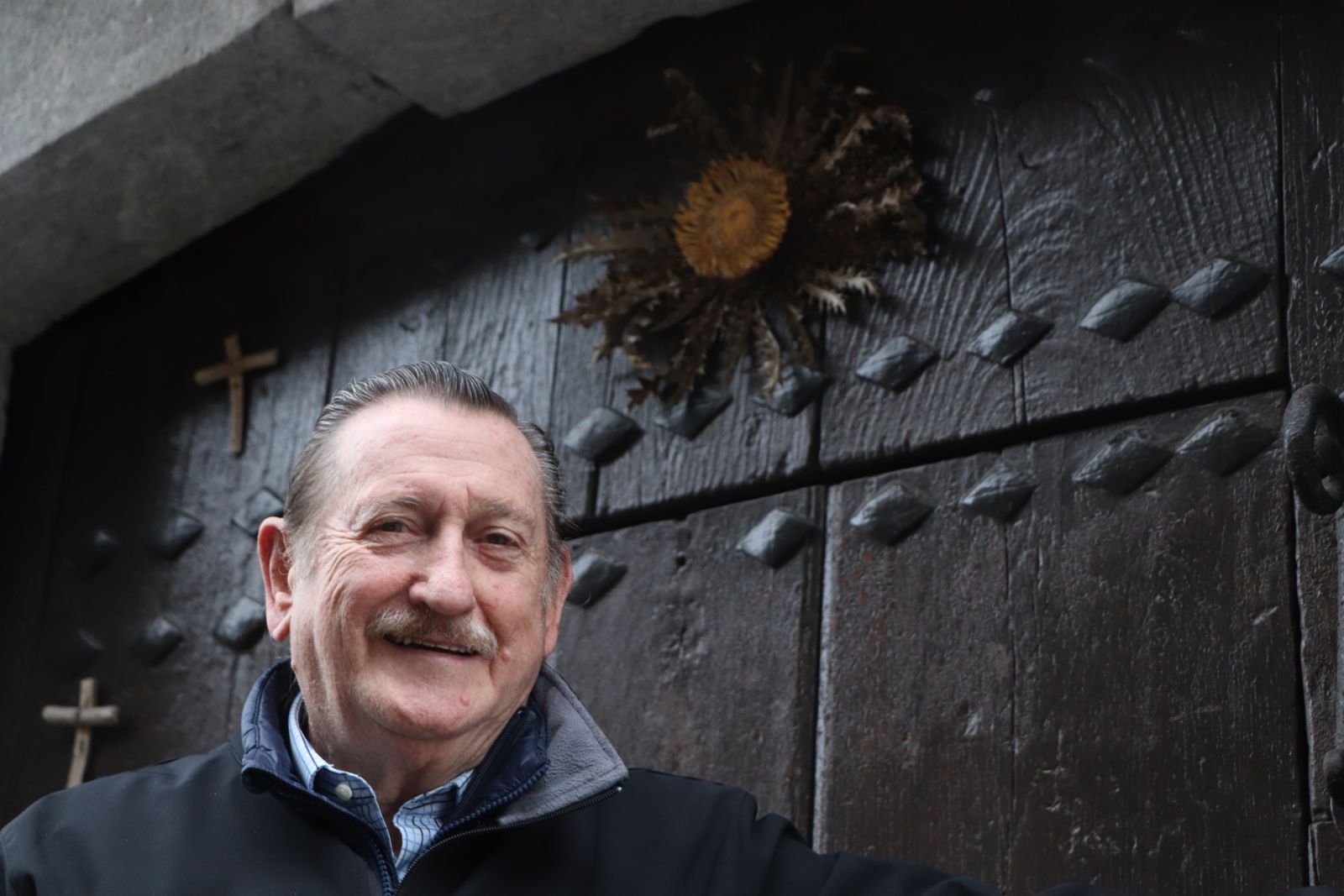
1940...
Companys was shot at the same time. When she heard, she gave a mental stroke to Mrs. Zugazagoitia, and her sister, who accompanies her to our mother, took care of her children: Fermín, Olguita, José Mari, Jesús and Julián. They all died. They were Zugazagoitia Ruiz, and there is no one left in Mexico. The war undoubtedly marked the history of our family! In our family, some emigrated to Argentina, others to Venezuela, others to Mexico... We are the only Garritz from Mexico, because our father went there! However, I go to Pamplona and see that there is a lot of Garriz! I scream. Our father, however, was Sabinian and put Garritz, translated into Basque.
What is the Basque in your family, in your descendants?
Thank God you know perfectly well what Euskadi is and what that nationality means, even for them. They also have a circle of Basque friends living with tremors. Many have lost that feeling in Mexico, and although they are known as Larrasolo, they have no trace of their origin! Every family does what they can. Our sister Amaia has the exam, and in the first generation the Basques married the Basques, for example. The next, with those who are not Basque. In the end, this vasquity is getting further and further away. I categorize this by dance groups. The group older than us, nine out of ten, married each other. On my knees, Pedro Menoyo married a Basque; Jauregi also... I would be one of the few who did not marry the Basque.
I have read that his wife had Valencian parents (Catalan countries).
Yes, we were both learned at the same school. In our children, for example, the fact of being Basque is not among their priorities, at least in the case of the daughter. The fathers of the past were trying to bring the Basques together, but long ago it is not. That is the case with those in our house, and I see it here too, that people have made a mistake. It's many years and it's always hard to keep the initial flame. In the Diaspora, the children and grandchildren of the Basques are increasingly dispersed, and although they maintain their identity, they live today, somewhat forgetting the origin and history of their ancestors.
* * * * * * * * * * *
Franco's death "We celebrate
Franco's death as if it were a great party. After Franco's death, Mexico came back in contact with Spain, and that almost sudden decision we didn't really like the Basques, because we still didn't see clearly what kind of regime Spain was going to be. The Basques knew that Spain could not change from one day to the next, from dictatorship to democracy.”
“I
have a resentment with Spain. Our parents had to run away and hurried, and we were born there in Mexico. I first came to the Basque Country at the age of 30 in 1974, and I was in Spain and I was in the Basque Country. Then, in 1978, when I came to play the ball, I realized that for me Spain was no more than the airport of Madrid. I come from Mexico and my life is in the Basque Country. Spain is a foreign country.”
The Zazpiak bat
Basque Club of Mexico is the case of the 'zazpiak bat'. No matter if they're Navarros, whether they're from the north -- we're all Basques, we've got the doors open. Chance has meant that our country is divided for geopolitical reasons, but we are all as Basque as the other. What’s more, Navarra is our cradle! Our father was Navarro, and he was more rabid than the largest Abertzale of now!”
LAST WORD From life
to the chair
“At the time of our father, they played life for the Basque Country. Now ... They play the chair! They’re too comfortable!”
Euskal jatorriko 37 gazte estatubatuar Euskal Herria ezagutzen eta euskara ikasten aritu dira uda hastapenean.
San Frantziskoko Euskal Etxeak 40 urte bete ditu asteburu huntan.
I have received an email from Brazil. These are words of beasaindarra Estebe Ormazabal Insausti, a subscriber of ARGIA. It's not the first person living abroad that we've brought to this corner. Little by little we are collecting the opinions, reflections, criticism and praise of... [+]
San Vicente barrutia (Argentina), 1934ko maiatzaren 18a. Mathilde Díaz Vélez lurjabeak Buenos Airesetik 40 kilometro ingurura zeuden bere lursailetan Guernica izeneko herria fundatzeko eskaera helarazi zion Buenos Aires probintziako Obra Publikoetako ministroari,... [+]







